Annex B
The survey took place from 29 July to 22 August 2011. The panelists were selected by PECC’s member committees from academia, business, government, and civil society on the basis of their level of knowledge of the Asia-Pacific region. The criteria given for the selection of panellists were as follows:
Government
Panelists should be either decision-makers or senior advisors to decision-makers. As a guide, the government respondents last year included a number of former and current Ministers, Deputy and Vice-Ministers, Central Bank Governors and their advisors for Asia-Pacific issues, current APEC Senior Officials, and a number of former APEC Senior Officials.
Business
Panelists should be from companies who have operations in a number of Asia-Pacific economies or conduct business with a number of partners from the region, this might include each economy’s current ABAC members as well as past ABAC members.
Non-Government: Research Community / Civil Society / Media
Panelists should be well-versed in Asia-Pacific affairs, being the type of individuals whom the governments, businesses, and the media would tap into to provide input on issues related to Asia-Pacific cooperation. These include presidents of institutes concerned with Asia-Pacific issues, heads of departments, senior professors, and correspondents covering international affairs.

For this survey we define those sub-regions as:
- NORTH AMERICA: Canada, United States and Mexico
- NORTHEAST ASIA: China, Japan, Hong Kong (China), Korea, Mongolia, Russia and Chinese Taipei
- OCEANIA: Australia, New Zealand, and Papua New Guinea
- SOUTH AMERICA: Chile, Colombia, Ecuador and Peru
- SOUTHEAST ASIA: Brunei, Indonesia, Malaysia, the Philippines, Singapore, Thailand and Vietnam

The discrepancy between the total number of respondents by sector and sub-region comes from some respondents who follow regional affairs but are not resident within any of the sub-regions.
Economic Outlook and Risks to Growth

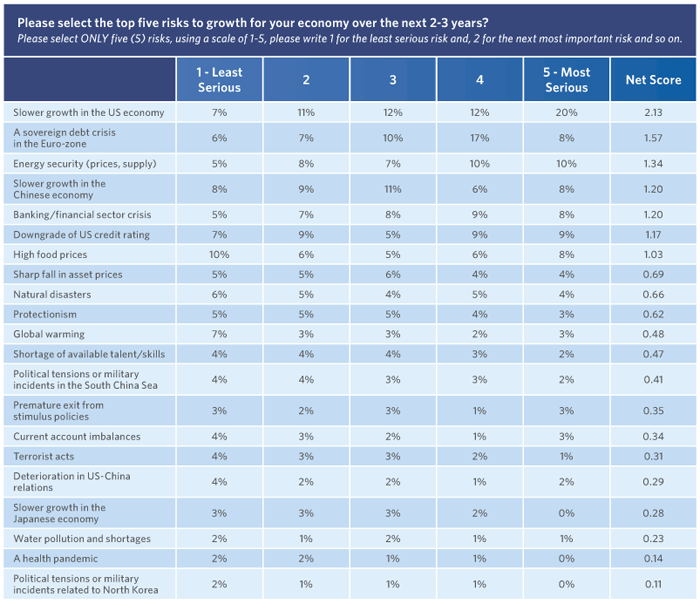
New Growth Strategy
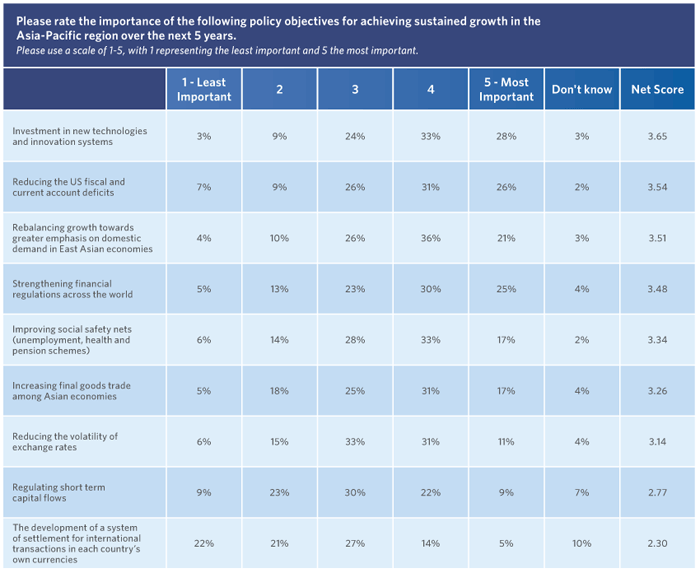
Regional Economic Integration
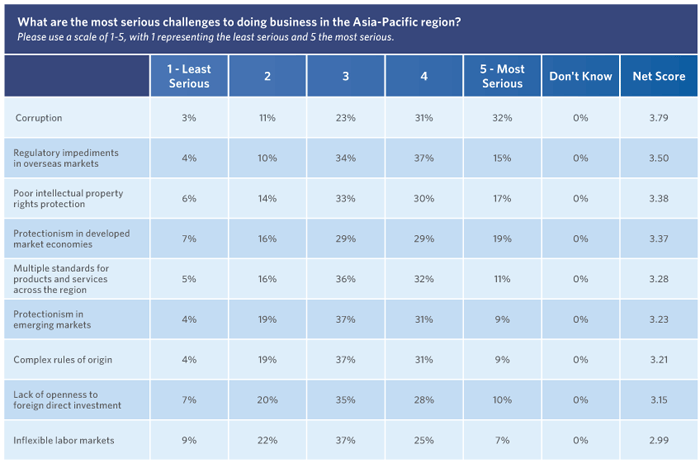
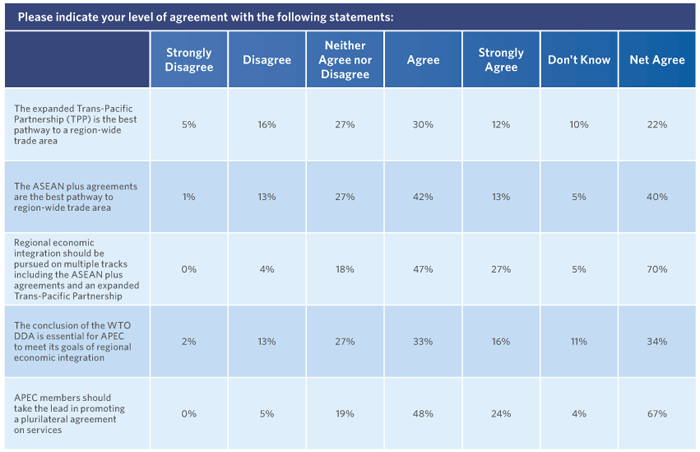
Asia-Pacific Energy Security and Cooperation
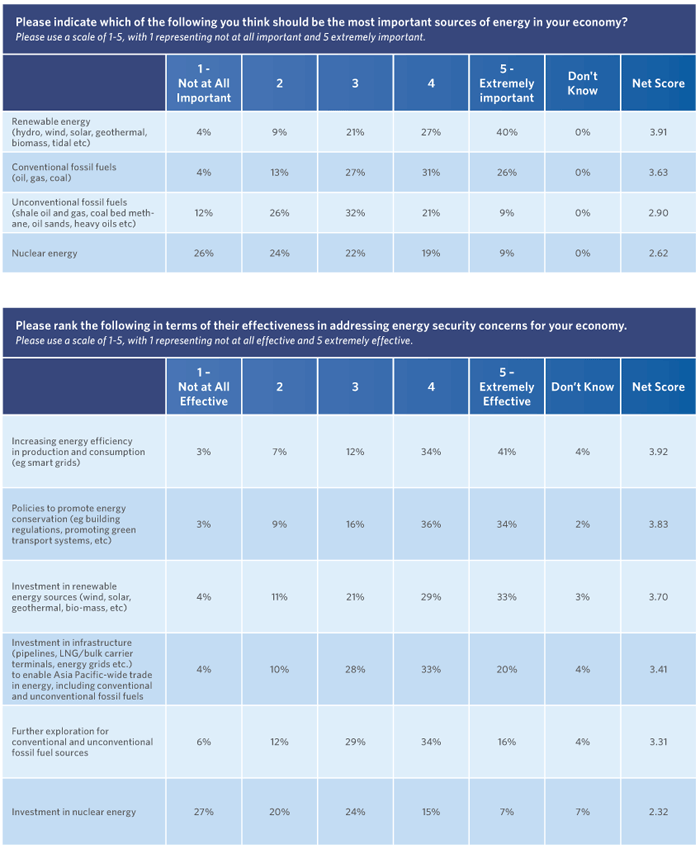
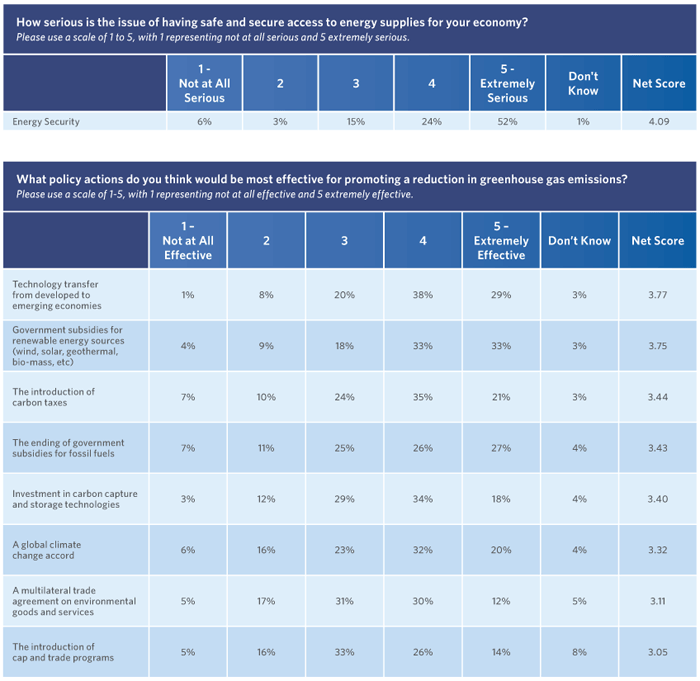
Regional Institutions
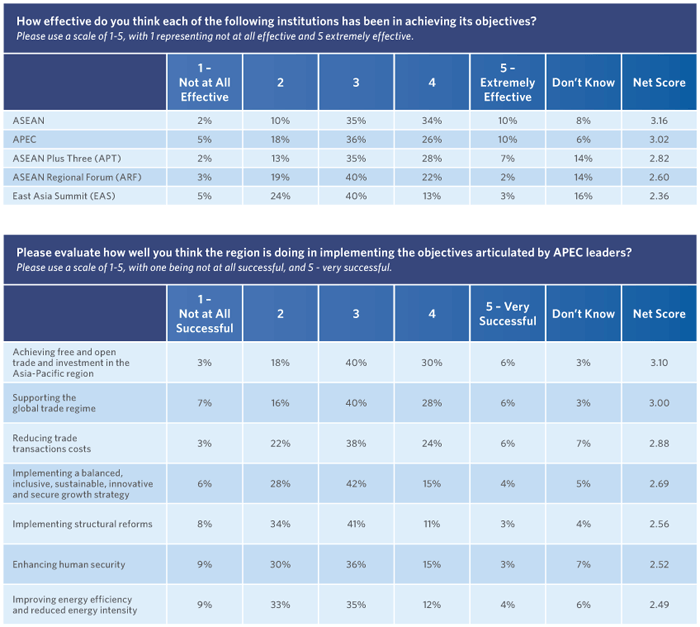
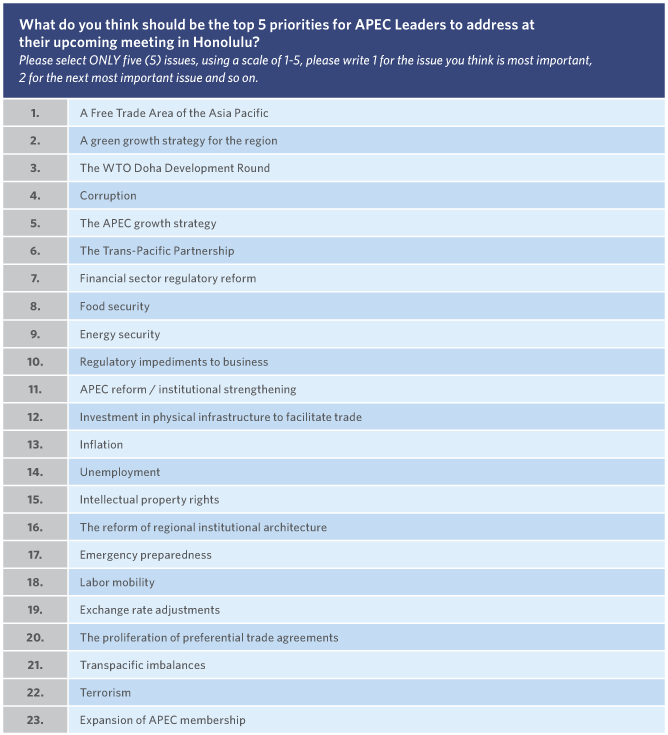
Next >>
